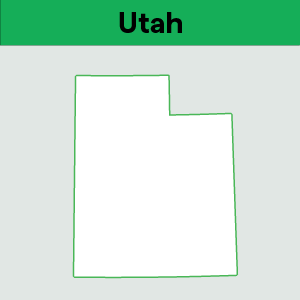What to know about sales tax on services
by September 15, 2024
Most, if not all, of us are used to paying sales tax when we buy things. Whether it is for a car, our groceries, or a book from an online bookstore, we know that we are going to owe some type of tax on our purchase. As you may recall, we have been paying taxes on purchases throughout our history here in the U.S., where taxes were charged on various goods, such as tea and paper. Sometimes these taxes got so high and cumbersome that we took matters into our own hands and started a rebellion.
However, we no longer live in colonial times. While we still buy tea and paper, our economy has developed to the point where more companies are being formed to performed services for a society has most of its material needs met, and looks to either make other people’s lives better, or to more efficiently distribute the goods and services produced not only in the U.S., but around the world.
Governments have seized on this trend and have started to tax services. Perhaps you have started a service business, and need to know about the rules for charging sales tax on your offerings. What do you need to know about sales tax on services?
This guest post is brought to you by CPA Chris Peden of the Accounting Scribe.
Nexus
The first thing you have to know about is something called sales tax nexus. A nexus, in a tax perspective, means that your business has established a presence in an area. This could be a presence in a state, or possibly within a county or city if the state has sales taxes determined at that level of government. What this means is that you do not have to sign up for a sales tax license in every state. You will only have to register for a sales tax license in a state where you have a nexus.
You can have a presence in a state in a few ways. The first is to have what is called a direct presence, which means you have a store or office in the area. The second is to have an indirect presence through a representative who is located in that state, hold inventory within that state, or have employees who live or work in there. Lastly, you can have a nexus if you have affiliates in that state where you have sell your services. Keep in mind that a nexus can be established if you have people traveling through the state to visit actual or potential customers, or attend trade shows. If you have done any of these things, you may have established a nexus and need to register as a retailer and get set up to collect sales tax.
Is your service taxable?
While most state laws focus mainly on taxing physical goods (and some digital goods), some states have started looking at taxing services as well. This is because lawmakers have noticed that the economy has changed to include more service oriented businesses that do not charge and collect sales taxes. As this segment grows, this means that a significant potential revenue source is not being utilized, so the lawmakers will look to a tax on service transactions as a way to bring in revenue to fund state operations.
We outline which states tax services in this blog post.
Services with equipment
So what happens if you provide a service for a customer, and you provide some equipment as part of the service you provide? Let’s say you are an electrician, and you fix someone’s electrical system by examining their wiring for a couple of hours, determine they just needed a new fuse, and bill them for the few hours and a fifty cent fuse. Since you provided a product (the fuse), do you charge them sales tax for the entire bill?
It really depends. What will be looked at is what is being provided. States have developed what is called a “true objects test.” In this test, you determine whether the service you provided or the property used was the main object of the transaction. The test is whether the service you provided is incidental in importance to the installation of the equipment. In the case of the electrical system check, you were paid to fix a problem in the electrical system, which was done by the installation of a fuse. In this case, the transaction probably would not be taxed.
What should a business owner do?
With all this in mind, what should you as a business owner do if you provide services to your customers?
The first thing to do is contact your state department of revenue. Talk to them about what the rules are in your state with regard to the rules on taxing the services you provide. Additionally, find out from them if you will need to register at the city or county level as some states, such as Arizona, charge sales tax at that level.
Second, talk to them to find out if there is another state agency or some other part of the government that regulates the services you provide. This department will be able to walk you through the taxes you may owe for providing the type of services you provide.
Lastly, if you have any question about sales tax laws in your state, get in touch with an accountant who understands the sales taxes and can help you navigate the various rules and regulations. The department that regulates the type of services you provide to your customers will probably be able to point you in the direction of an accountant who is familiar with the rules related to sales tax on services, as well as any other fees you will have to consider.
To learn more about TaxJar and get started, visit TaxJar.com/how-it-works.
About the Author:
Chris Peden, CPA, CMA, CFM has spent more than 15 years in the corporate world helping companies meet their regulatory compliance requirements. He also assists small business owners with organizing and making sense of their finance information.








